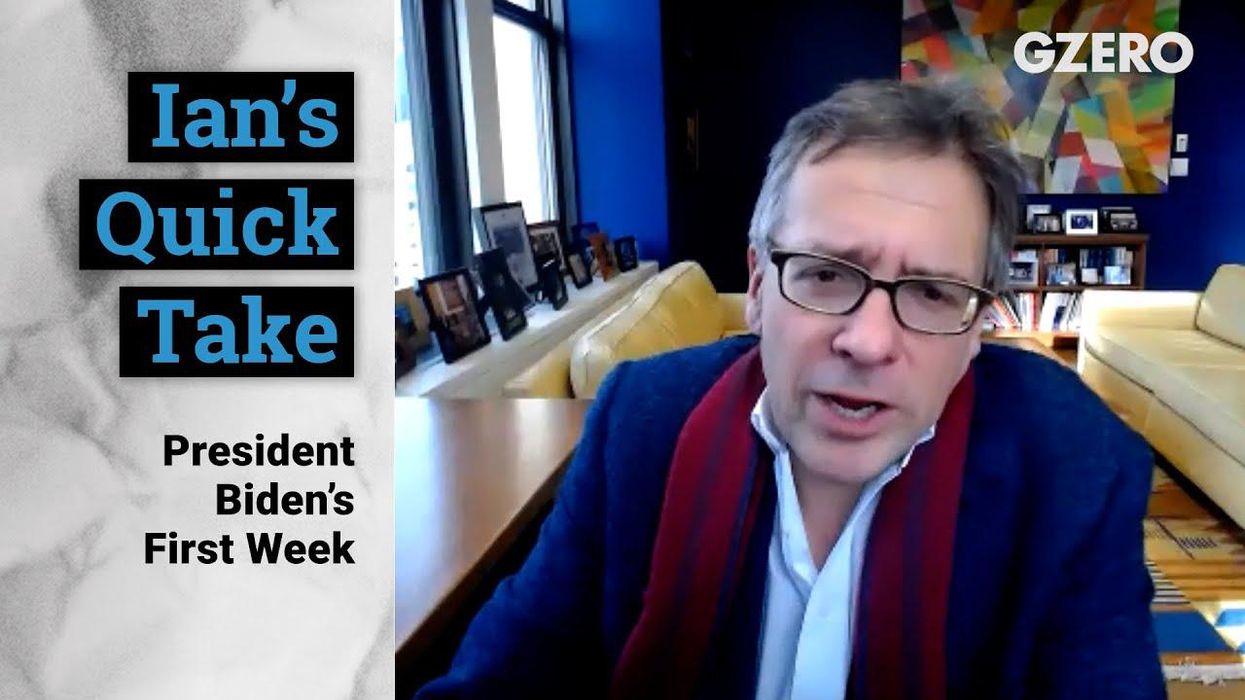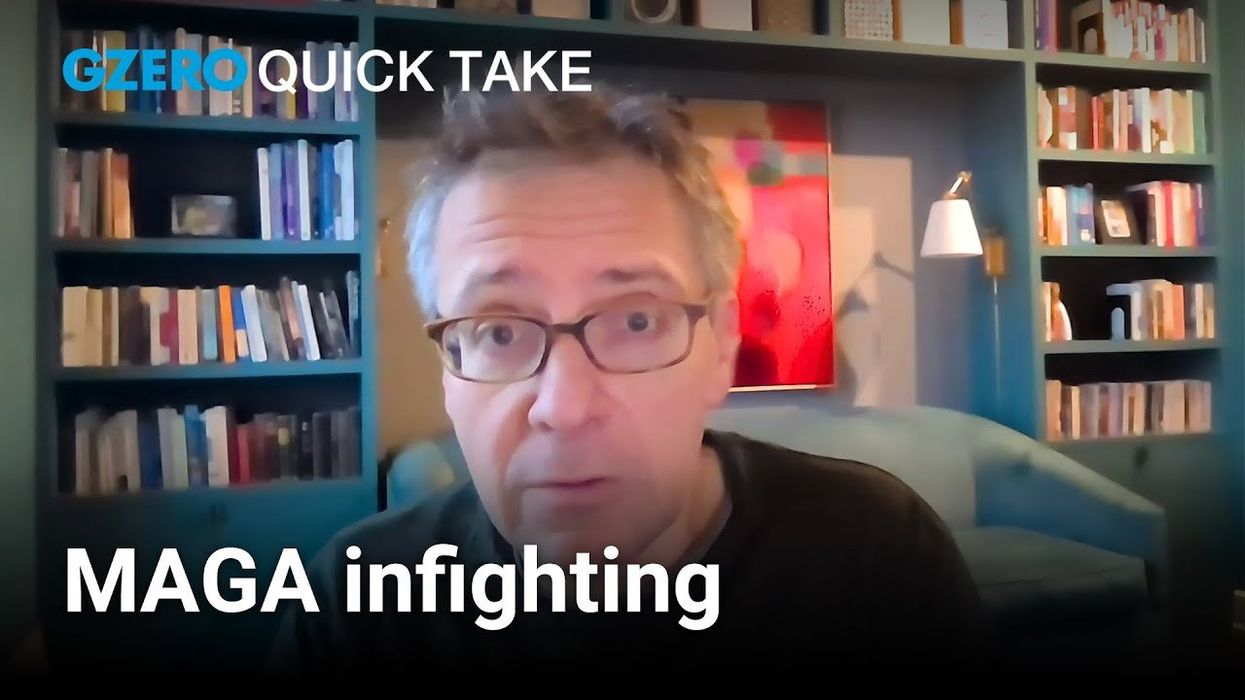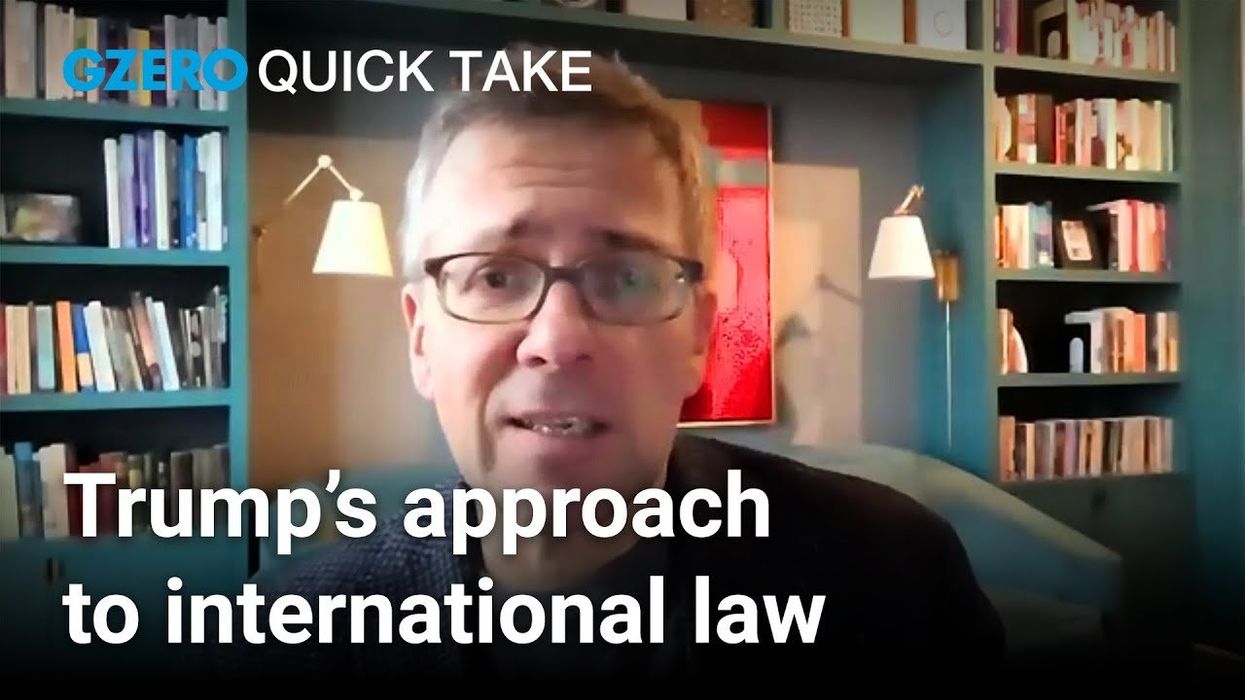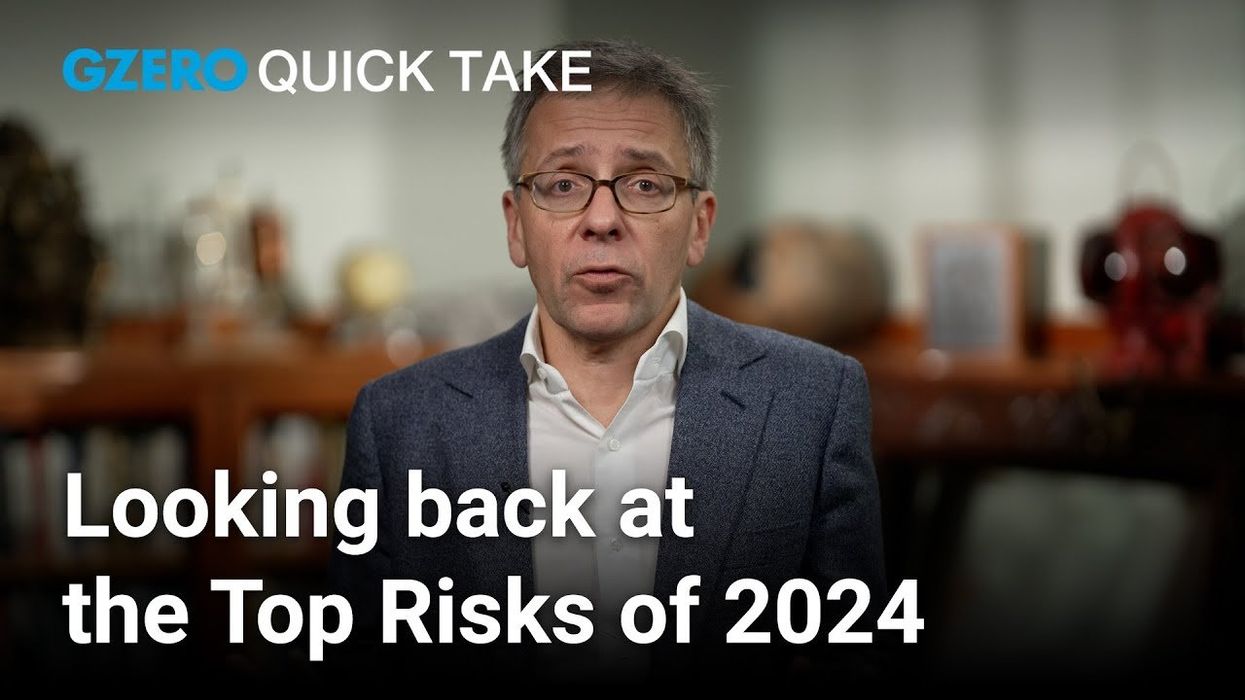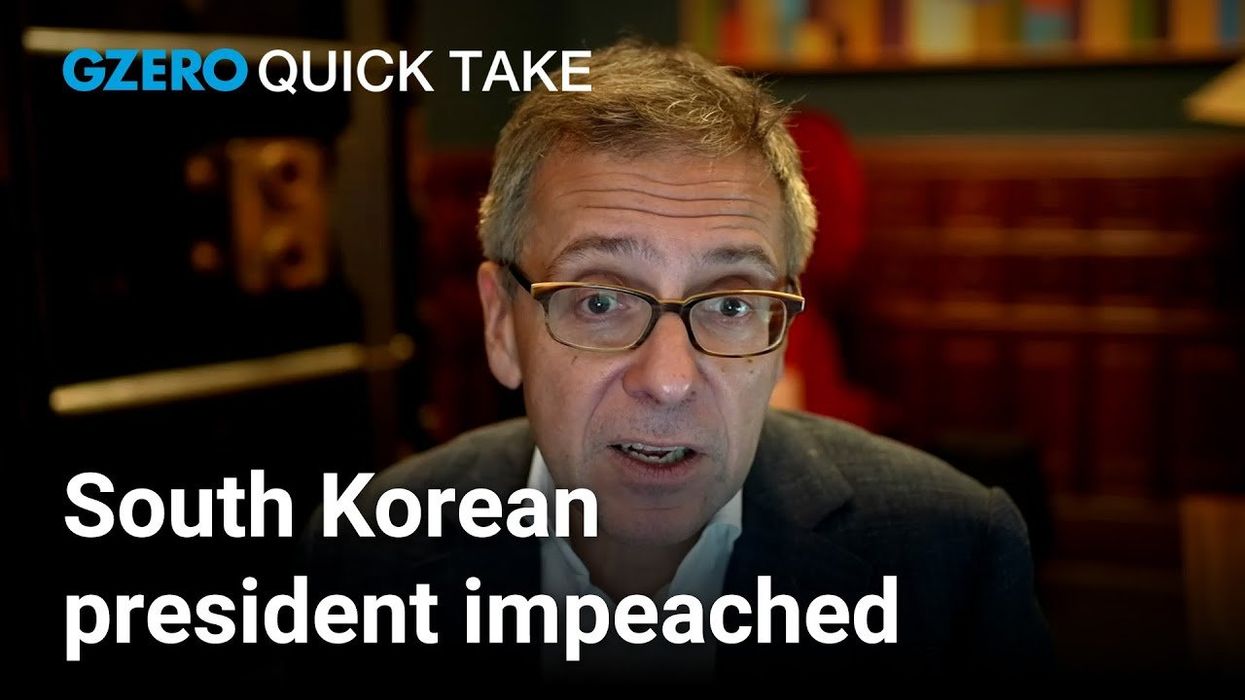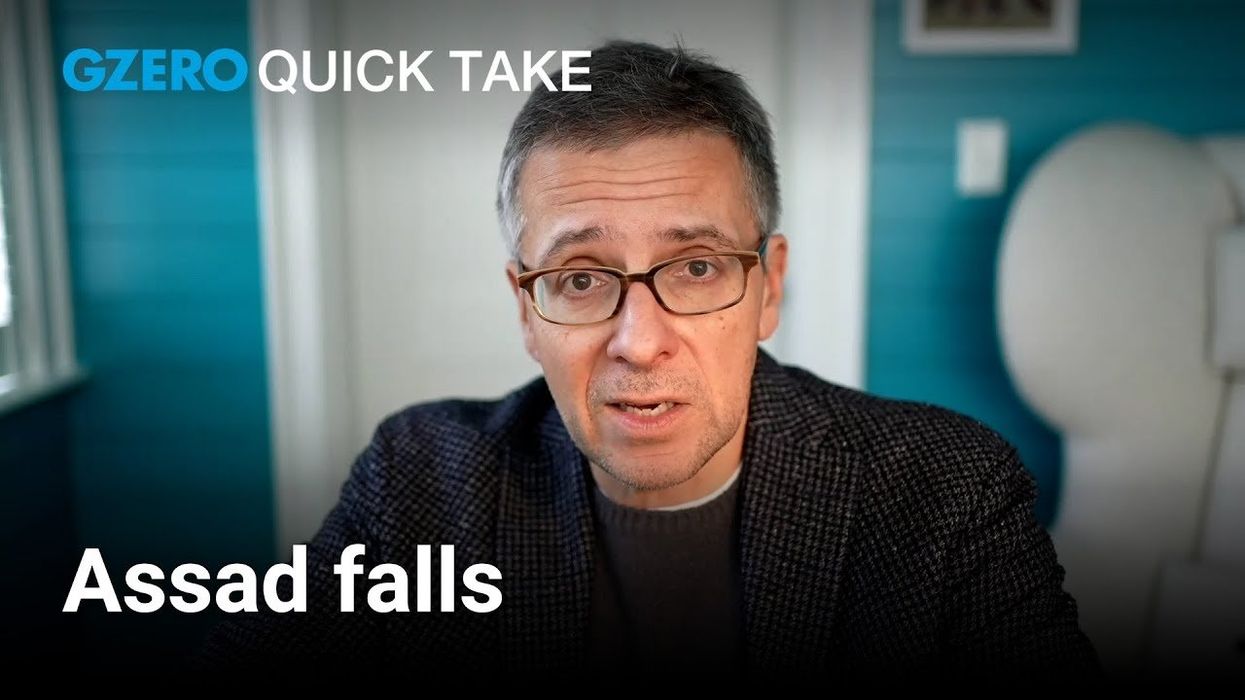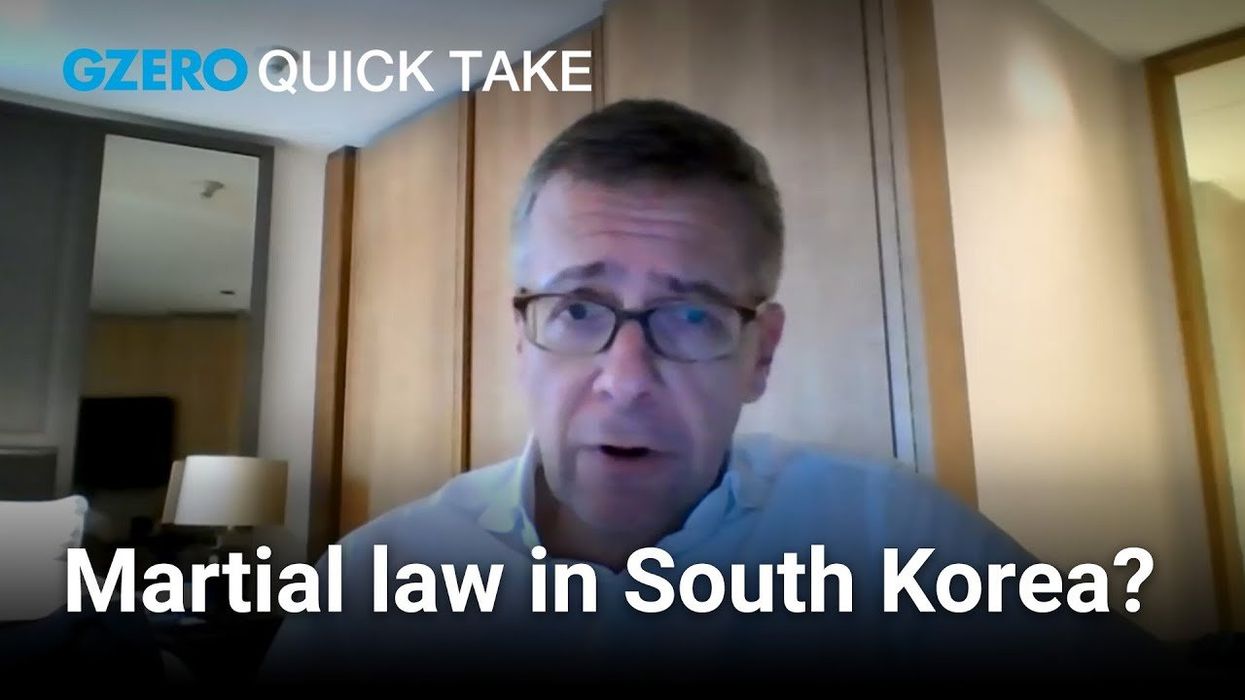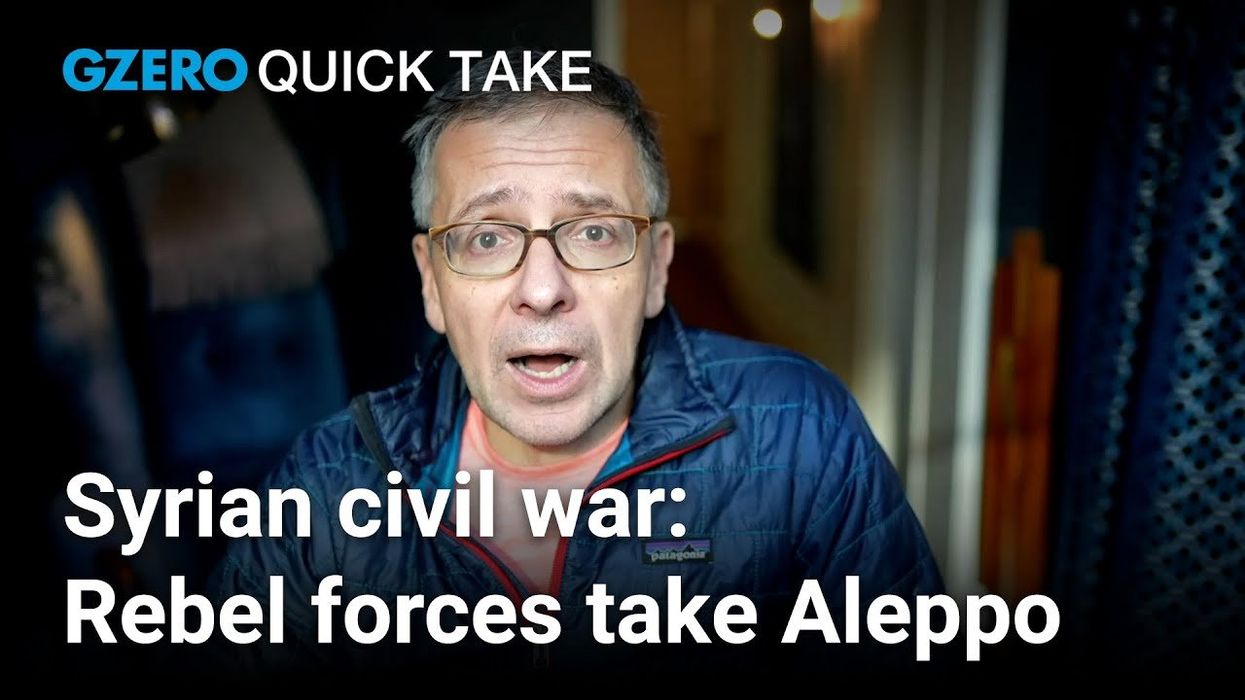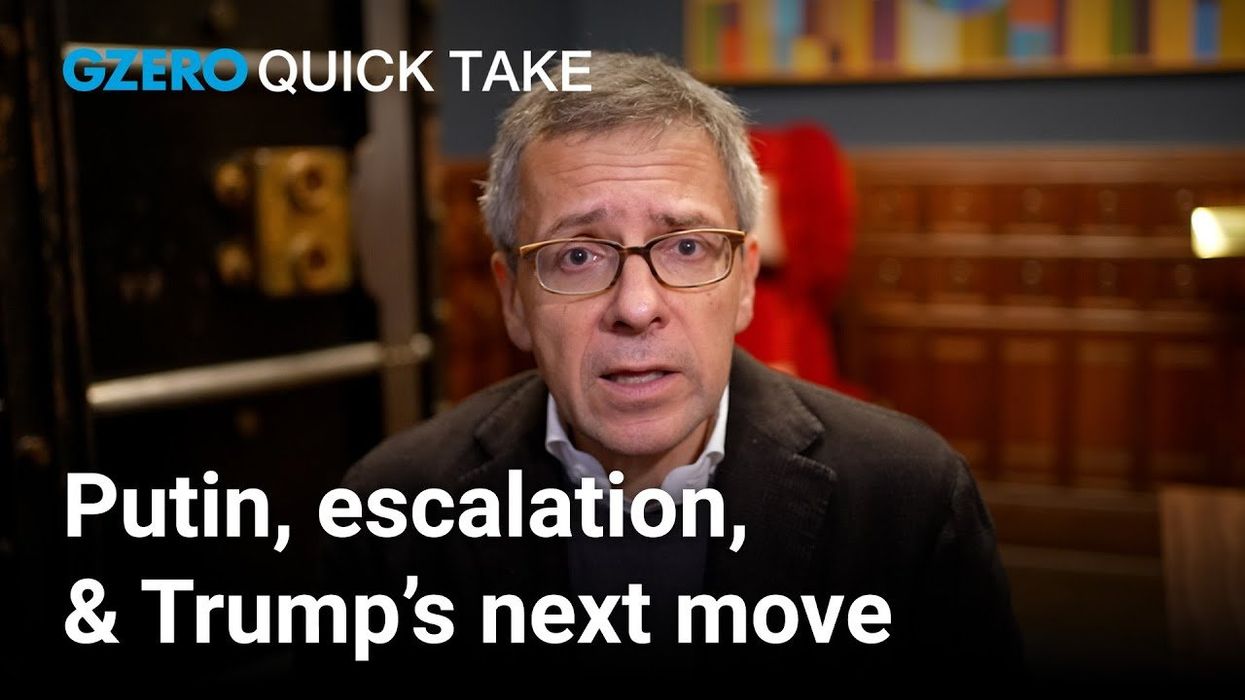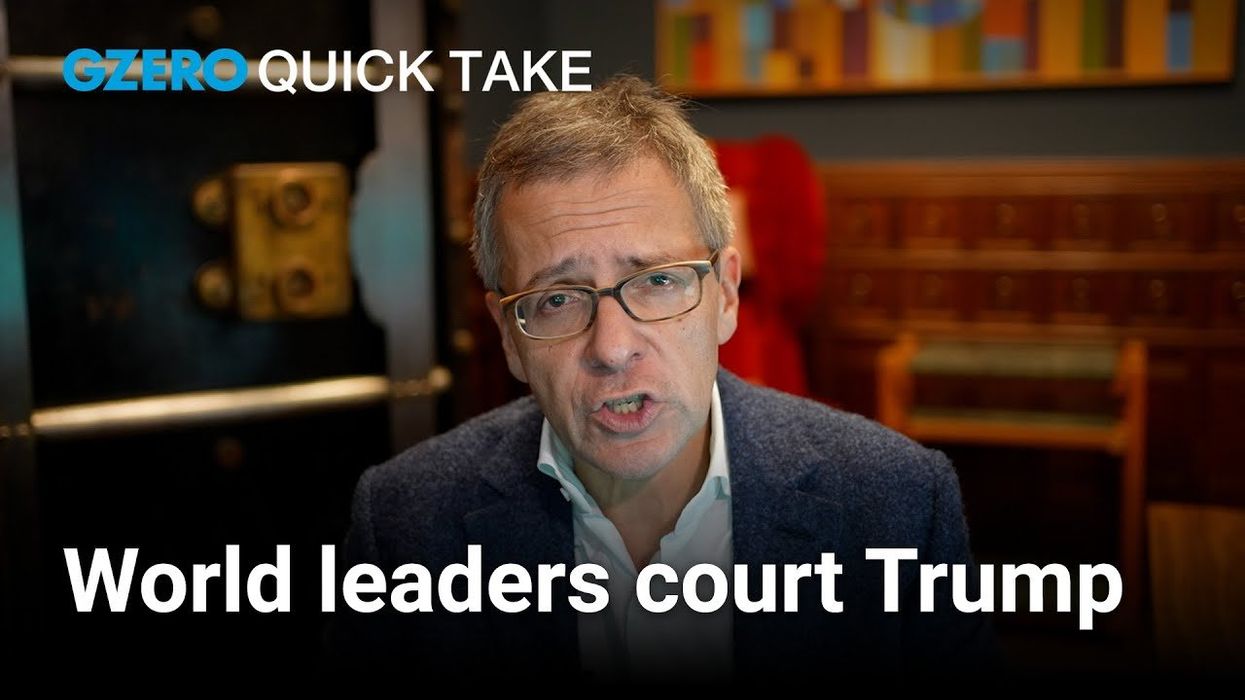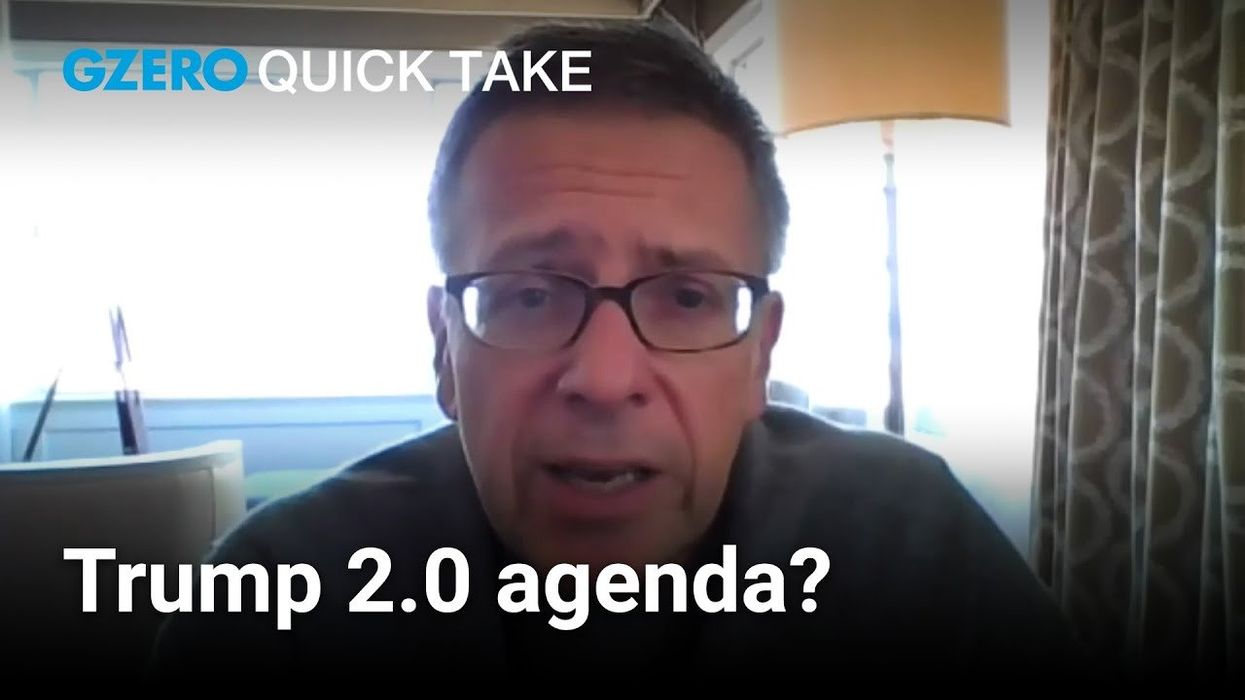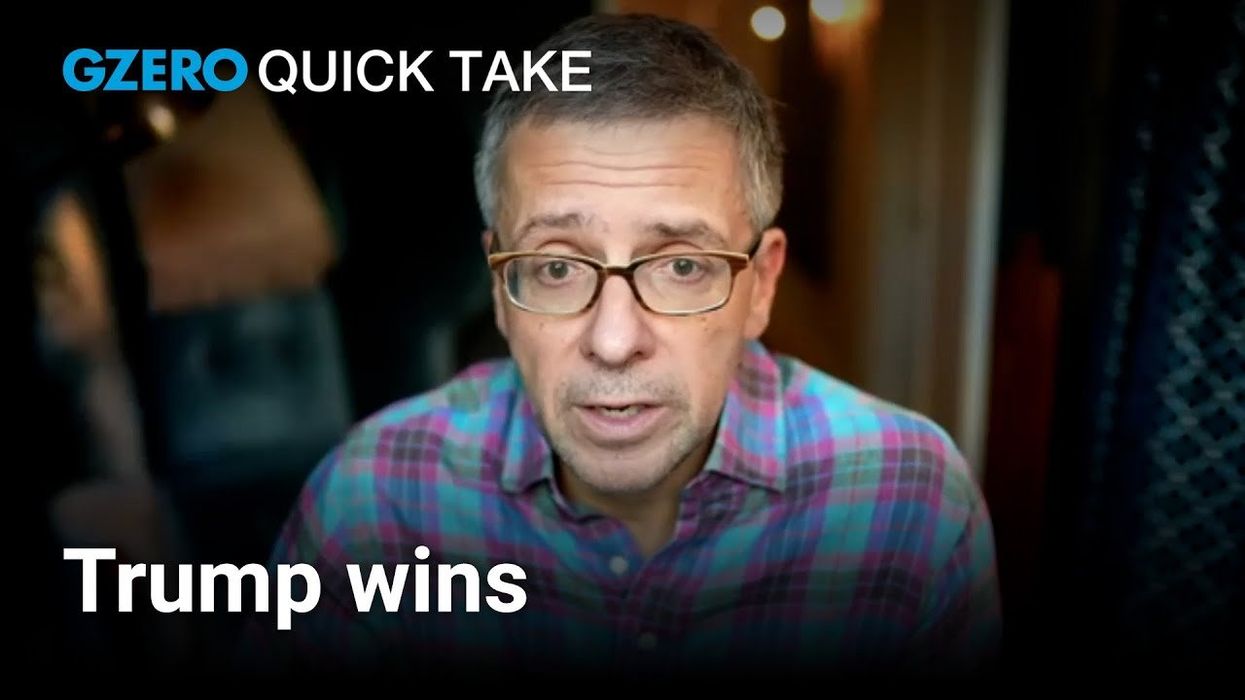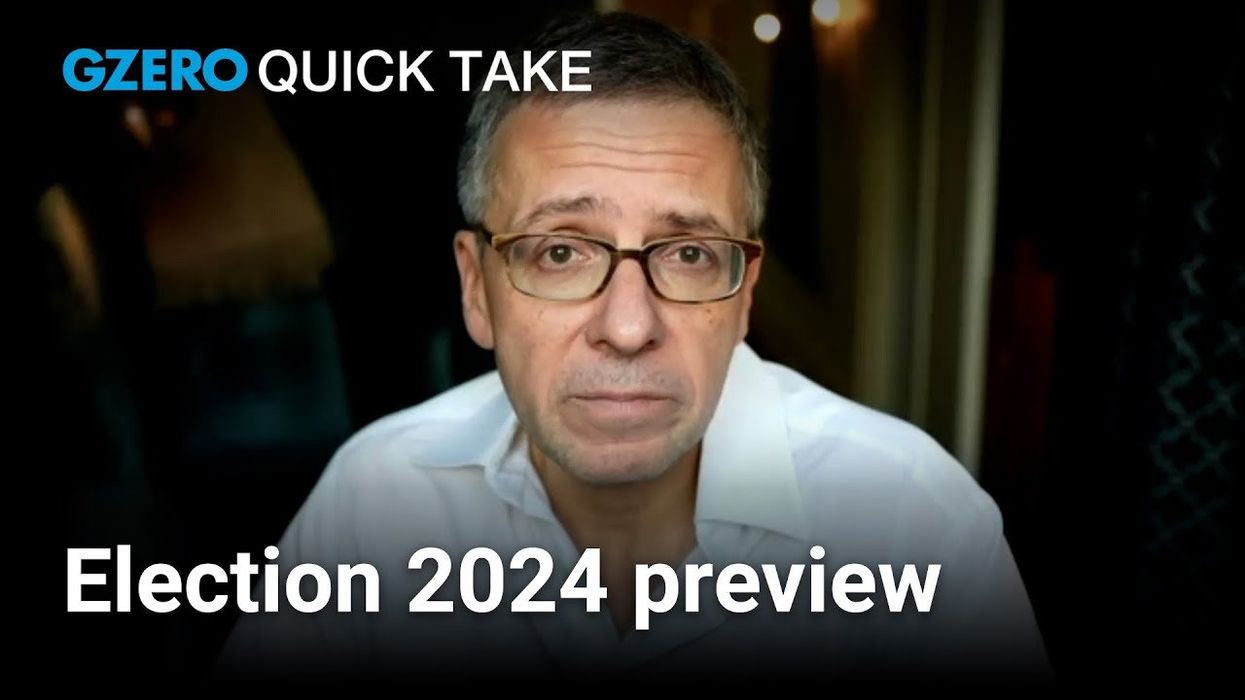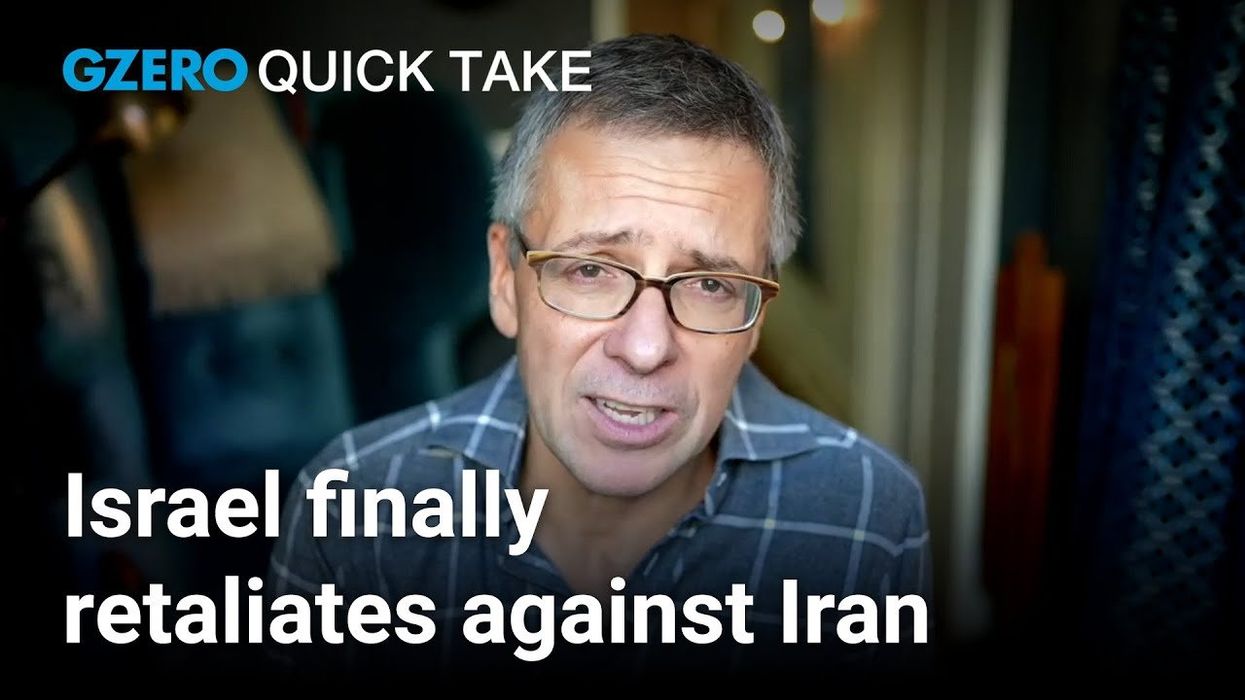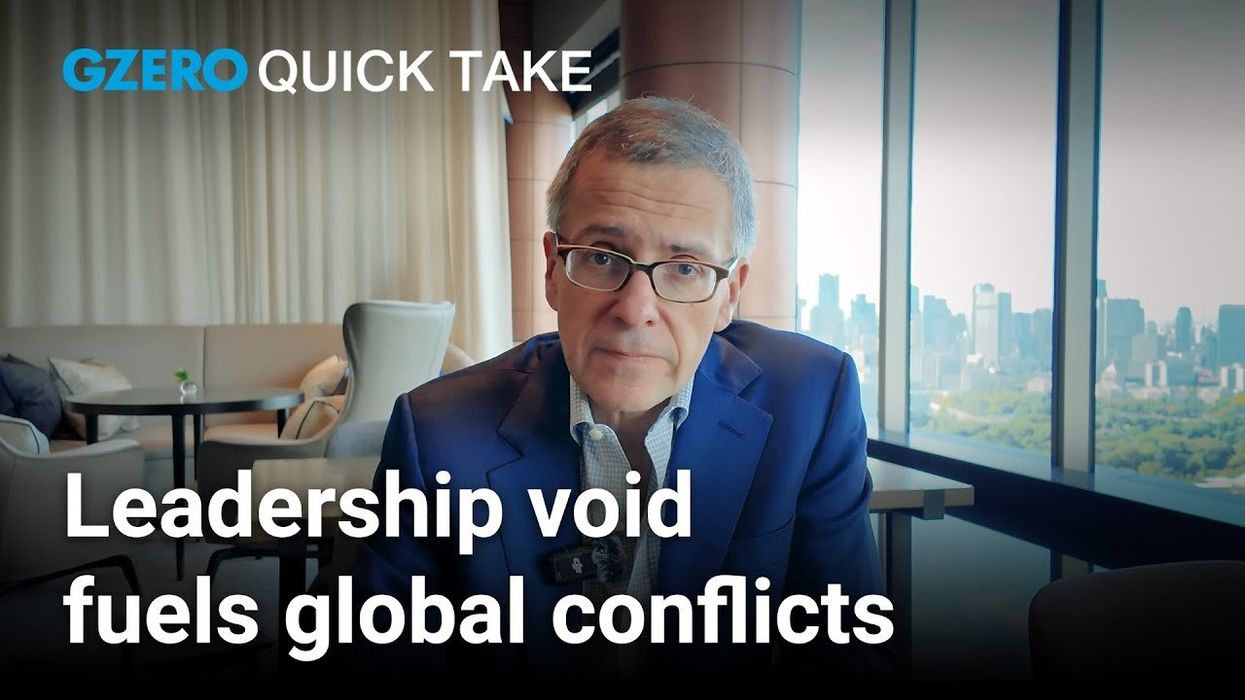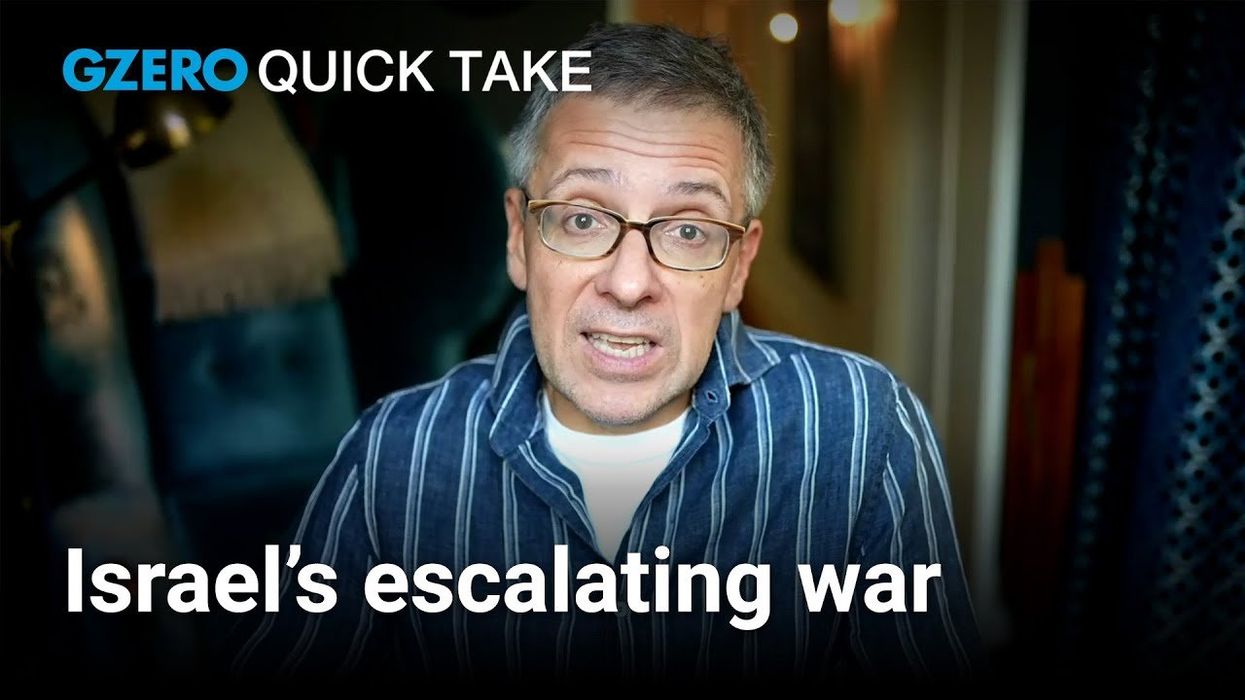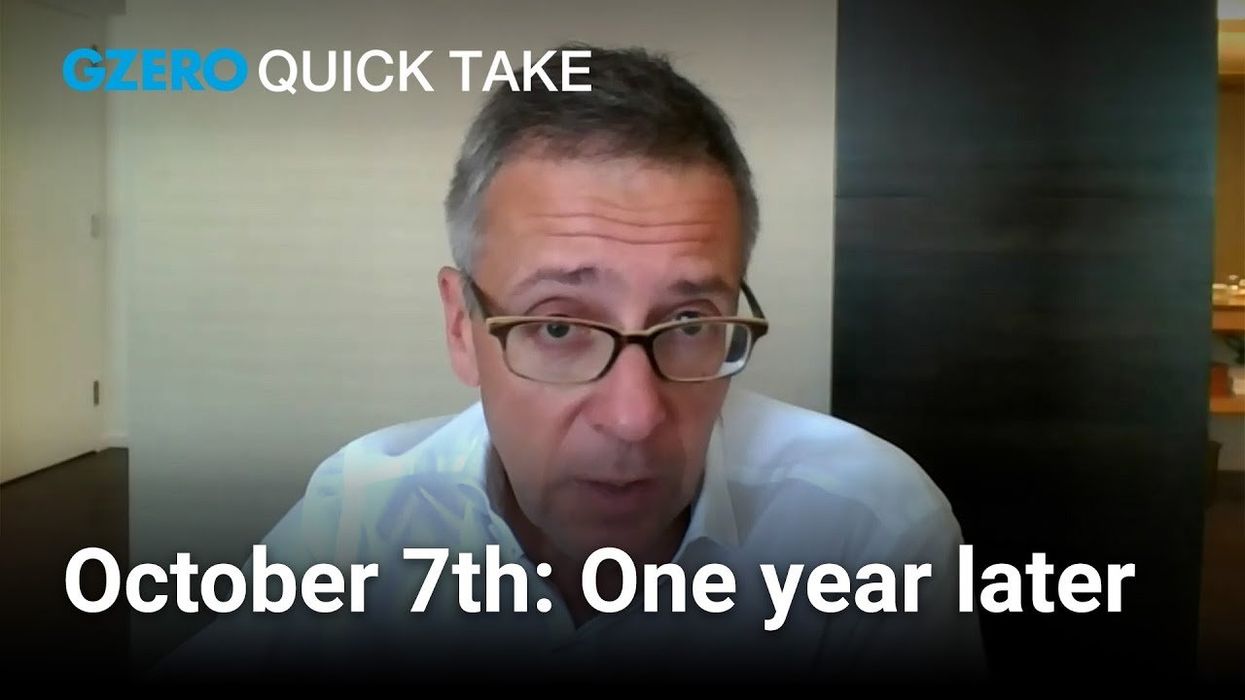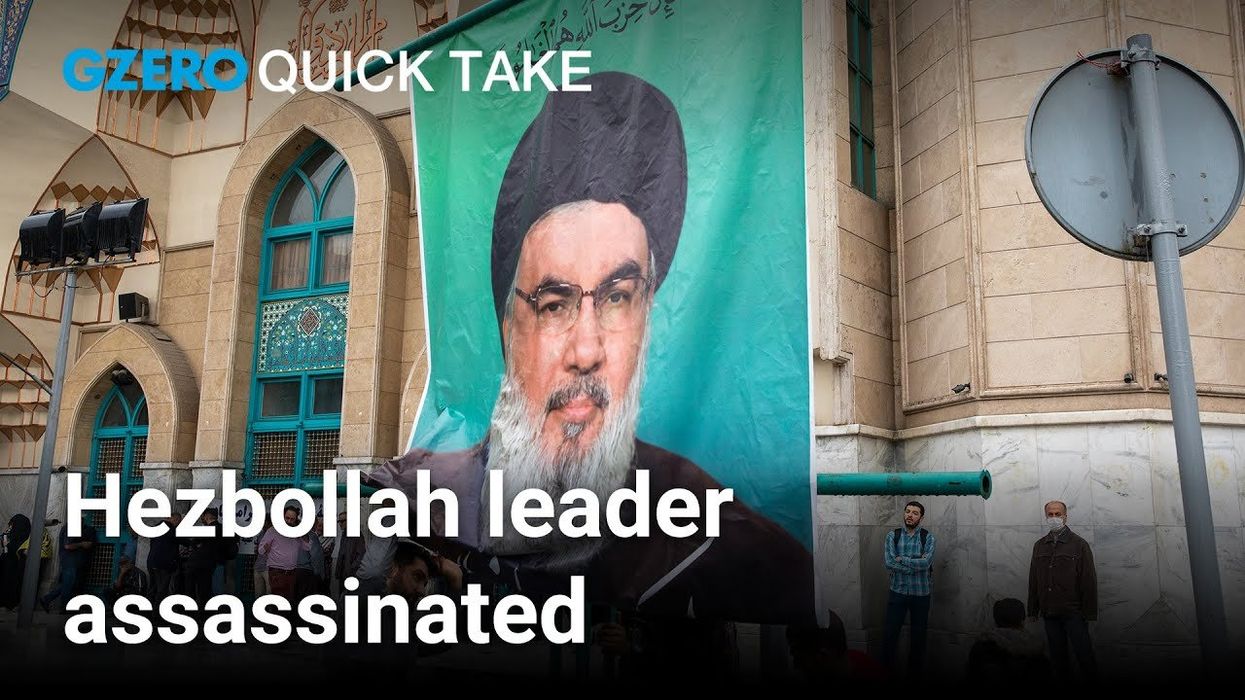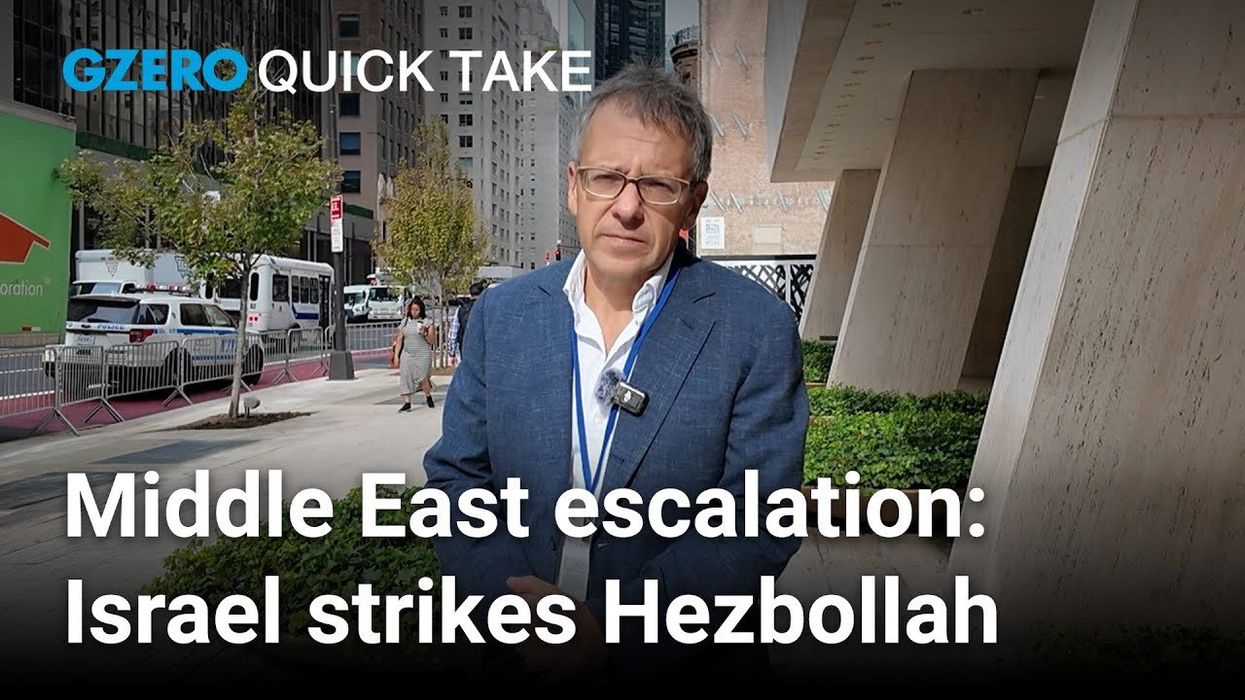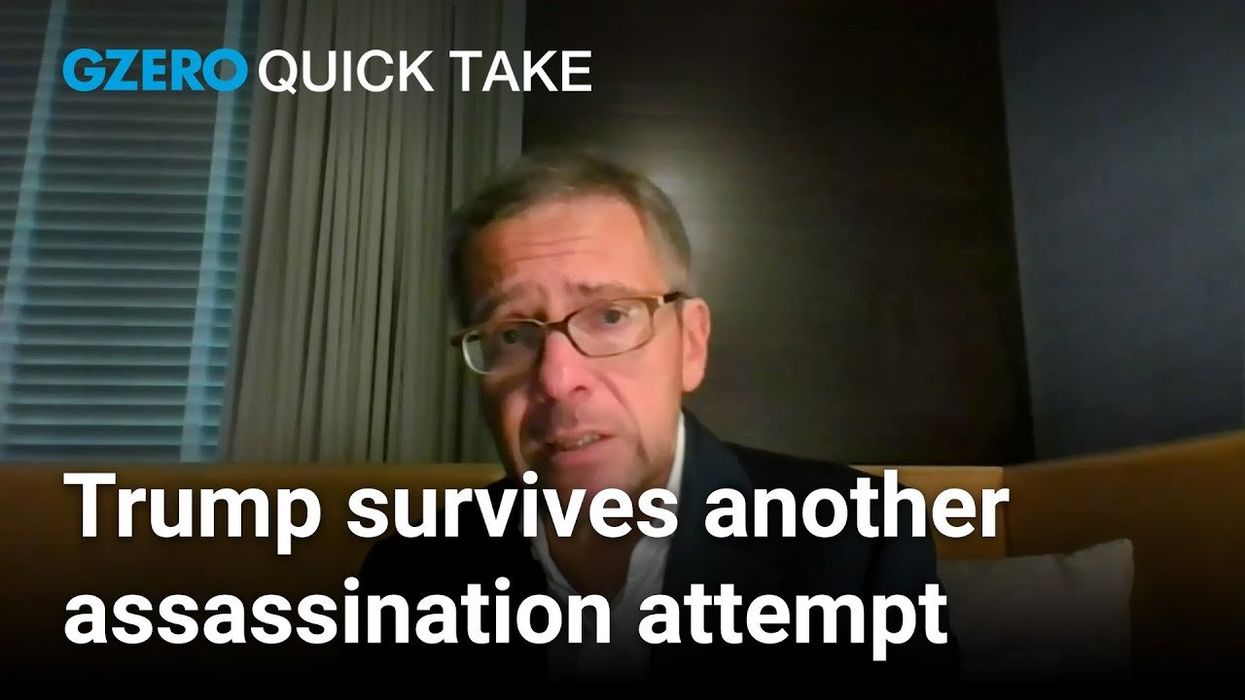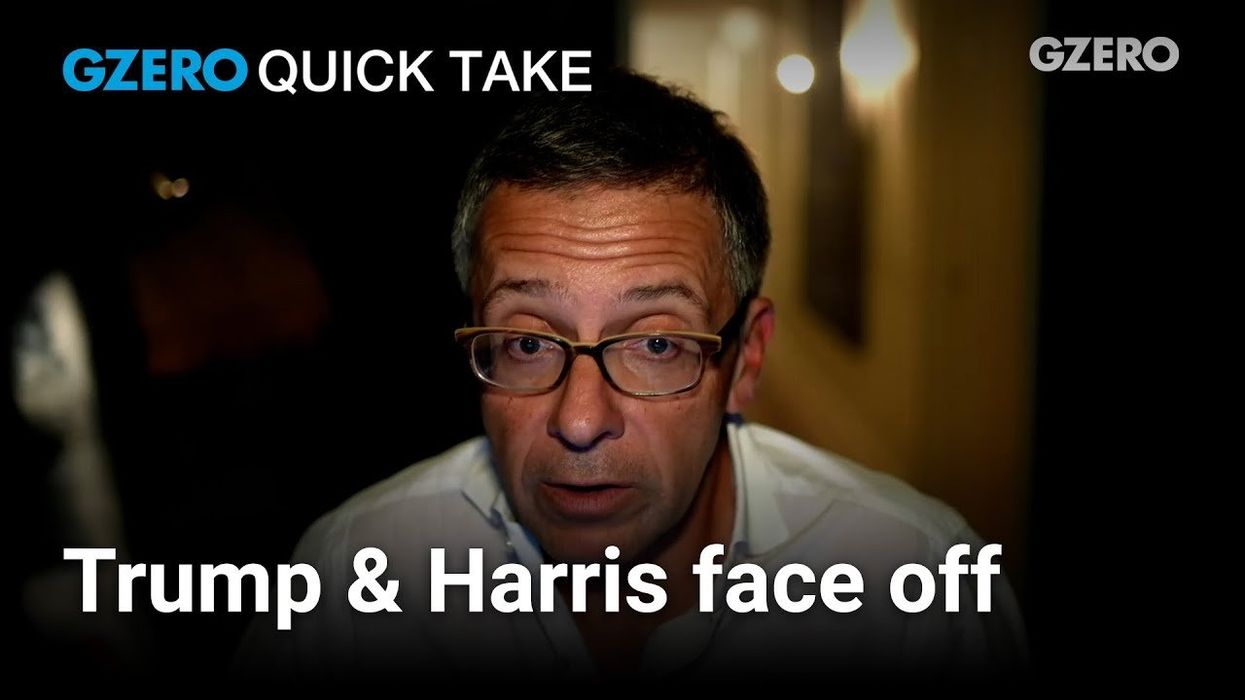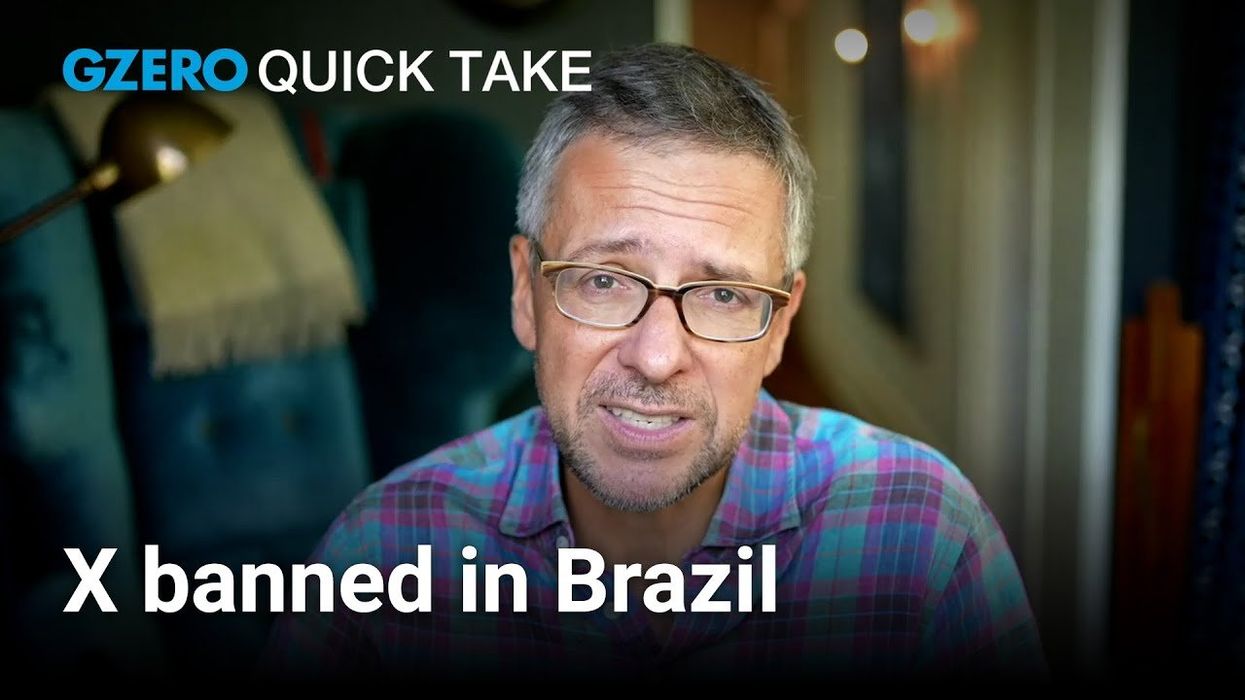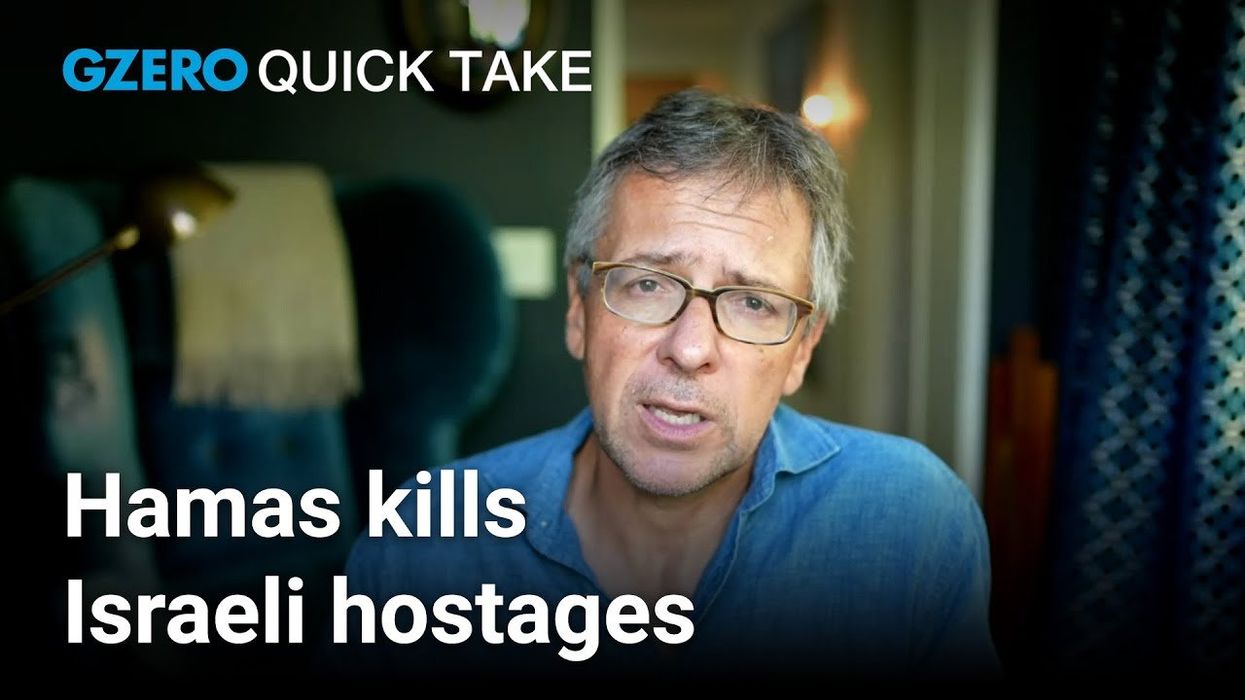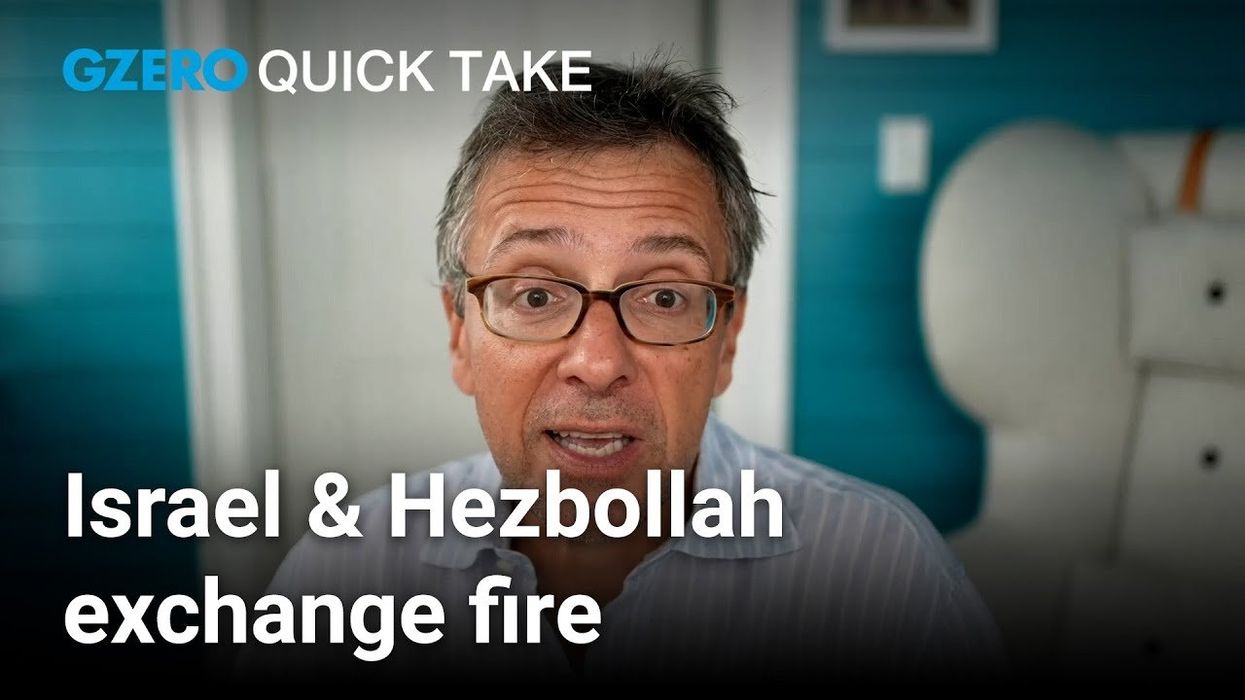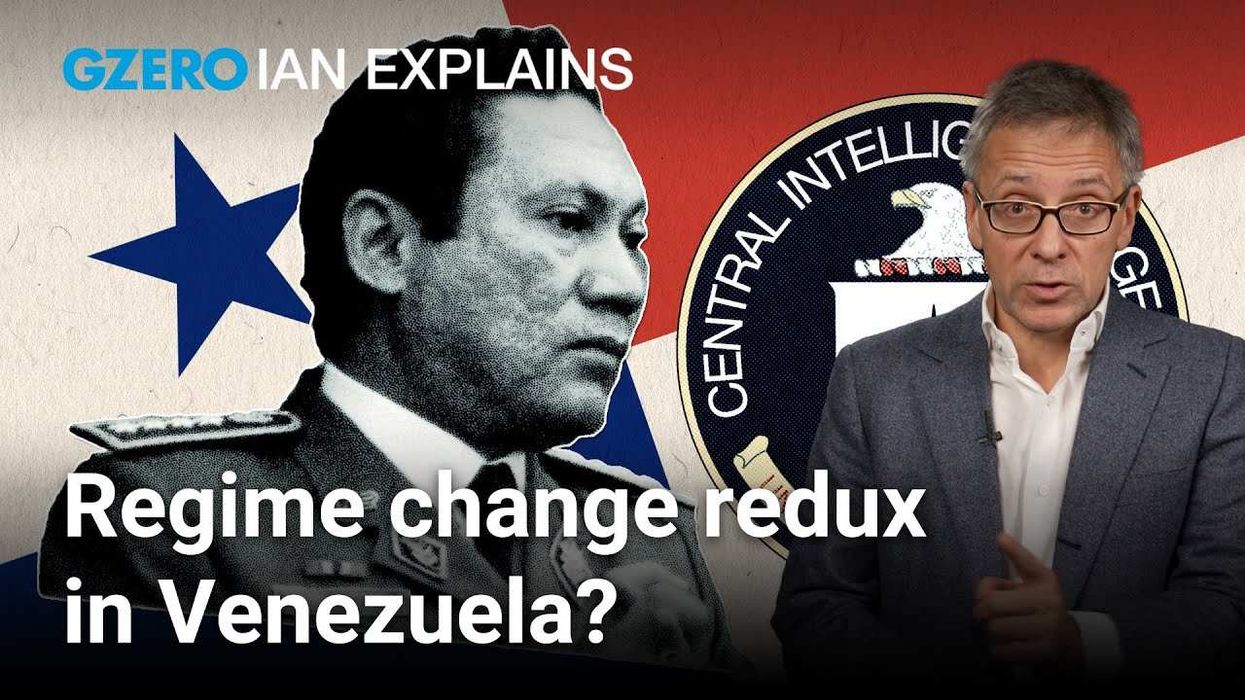VIDEOSGZERO World with Ian BremmerQuick TakePUPPET REGIMEIan ExplainsGZERO ReportsAsk IanGlobal Stage
Site Navigation
Search
Human content,
AI powered search.
Latest Stories
Start your day right!
Get latest updates and insights delivered to your inbox.
Ian Bremmer's Quick Take (part 1):
Ian Bremmer here, happy Monday. And have your Quick Take to start off the week.
Maybe start off with Biden because now President Biden has had a week, almost a week, right? How was it? How's he doing? Well, for the first week, I would say pretty good. Not exceptional, but not bad, not bad. Normal. I know everyone's excited that there's normalcy. We will not be excited there's normalcy when crises start hitting and when life gets harder and we are still in the middle of a horrible pandemic and he has to respond to it. But for the first week, it was okay.
To start, thank God that the inauguration itself was smooth. And that indeed, the biggest takeaway from the inauguration is that we can all meme Bernie Sanders, the people's meme for months, apparently, maybe for years. That's something the United States probably needed after four years of just their head exploding with things that were only meme-able in ways that upset people. This is something that can bring people together, but it's not a serious issue. Serious issue is that that was not violence. The serious issue is that there were not violent protests, there were not massive demonstrations. It wasn't disruptive. It was horrible to see 26,000 members of the National Guard protecting the inauguration and all the ceremonies around it. But I was still very glad to see that in all of the state capitals and everywhere people were so worried. In fact, the only major violence that we had from a demonstration perspective was not on the far right, it was the far left and Antifa in Portland, largely broken up with arrest and some violence, but that was it for the whole week. And given the events of January 6th to have gotten that far in two weeks is a positive thing.
As far as Biden's actions, the initial executive orders were pretty consistent with what we had grown to expect coming into the Paris Climate Accord is as much of a layup as one can possibly have in foreign policy. Every other country in the world opposed the US leaving the Paris climate accord, very easy for Biden to rejoin and quite popular, actually a strong majority of Americans support it, including a decent number on the right. The willingness to recommit to the World Health Organization in the middle of a pandemic also should be a no brainer and indeed, that's what they've done. The fact that they will find a few billion dollars to get the Americans involved in COVAX to provide vaccines for low and middle income countries. Certainly, a positive from my perspective, the kind of leadership you'd want to see from the US. You don't want to only see the Chinese taking the lead, the Indians taking the lead and providing vaccines internationally. You want the Americans doing more.
I liked the idea of going to the Russians offering a five-year extension of the START nuclear arms deal. No, we don't trust each other. No, we don't like each other, but there's still areas we need to work together. And avoiding mutually assured destruction strikes me as pretty much the top of that list. And the Russians initially, at least the response has been reasonably positive. Won't stop there from being additional sanctions from the US because of the Navalny arrest and the thousands of arrests and I'll talk about that in a second. Beyond that, in terms of the initial phone calls, Biden foreign leaders starts with Canada, Mexico, and the UK, the three countries that truly have no choice, but the United States. The closest, most interdependent relations with the United States among major economies in the appropriate order, Canada, Mexico, and the United Kingdom. They all went extremely well and there was nothing particularly surprising or uncertain around it.
Then French President Emmanuel Macron. And I am sure if I have missed it in the last couple of hours of call it, the German Chancellor and the Japanese Prime Minister should be following in very short order. That's again, as close to normalcy in terms of foreign policy as one can get. There's really a message being sent that this is business as you remember it, it's business as usual, it's business as we saw under Obama and Biden. That's again, given the level of volatility and the indifference to foreign actors. When you put forward America first as your brand, that's not hard to do, but let's keep in mind that under Obama and Biden, the United States was criticized as leading from behind, was losing influence internationally. And so, the honeymoon, I think with this Biden approach, if it is meant to be consistent with Obama, Biden is probably going to be pretty short and won't get them as far as they would like it to get.
Didn't get himself in trouble on Iran. I thought that was positive. Certainly, there are a lot of potential critics saying he just wants to get back into the Iranian nuclear deal with no changes, and they're not going there and they're not biting. Despite the fact the Iranian foreign minister said, "Let's meet now." And the fact that the Iranians are also starting to enrich at higher percentage, their uranium, which means moving closer to a nuclear breakout capabilities on weapons. That's a big deal, but they have to be cautious. It shouldn't be seen as the top priority. And it's not so far, I give them pretty good marks on that. The 1.9 trillion, this is the big issue, of course, domestic issue is how do you respond to the further relief, which is required so many small and medium businesses, for so many members of the working class, for so many unemployed in the United States?
I do believe that they will get close to that number. It will be over 1.5 trillion, it'll happen by April, even though it probably will have very bipartisanship in the House and Senate, that's okay. It's better than governing in every way by executive order, but it just shows how divided the United States is in this period of maximum crisis. A place where I'd be much more critical was on the 100 million vaccines, the rollout in the first 100 days. The criticism that there was no Trump plan, but the fact is that by the end of the Trump administration, you had 940,000 vaccines being delivered on average every day. You're saying over three months, you can't get any better than that? That implies that you're not coming in with a plan. And they've had months to put a plan together. I suspect this is under promise and try to over-deliver.
And it's also, they don't necessarily have a great plan together yet. And that's a place that we're going to watch very carefully, but the Americans should do better over the coming months, and the Americans should be careful about over criticizing operation Warp Speed and vaccine rollout under the Trump administration. Lots of places where the Trump administration failed, vaccines, in my view, not one of them, certainly in terms of initial production and distribution at the federal level. At the state level is a different story. But the state level is going to be a problem for Biden going forward too. The US is a federal system.
And then finally the fact that Biden hasn't weighed in particularly on impeachment, probably smart, because impeachment is not going to lead to conviction in the Senate. That feels pretty clear at this point. I hate to say this, but as bad as January 6th was, it wasn't enough of a crisis to make people respond to it. It was normalized by certainly most Republicans and even some Democrats who were saying, "Look, we just want to move on and start governing again." And that means politics of obstruction. It means divisiveness. It means Trump's not president anymore. So, let's not deal with that. But it also means there were no consequences for the actions that were taken, and I think that's a really big problem. So anyway, that's kind of where we are.
Quick Take, Part 2: Pro-Navalny Russian protests & Putin; AMLO's COVID Diagnosis
Ian Bremmer: Pro-Navalny Russian Protests & Putin | AMLO COVID Diagnosis | Quick Take | GZERO Mediayoutu.be
Russian opposition leader Navalny in jail. Hundreds of thousands demonstrating across the country in Russia over well over 100 cities, well over 3000 arrested. And Putin responding by saying that this video that was put out that showed what Navalny said was Putin's palace that costs well over a billion dollars to create and Putin, I got to say, usually he doesn't respond to this stuff very quickly. Looked a little defensive, said didn't really watch it, saw some of it, but it definitely wasn't owned by him or owned by his relatives.
And in the investigation itself, it said it was actually in a holding company by people linked to the Kremlin as opposed to Putin himself. But the hundred million people that have watched it, don't find Putin very credible on this. The interesting thing is the Kremlin clearly sees Navalny as a threat. They're responding in a more defensive way than I've seen the Kremlin respond to really anything since Putin has been president on the domestic front. And I don't know if that means that they can't kill him while he's under detention or whether they feel like they have to. Certainly, it makes it much harder for them to let him go. I think it makes it more likely that he's detained for a longer period of time or he's convicted of some ginned-up crimes. But the influence that he has across the country is actually growing.
And that probably means a harder fist from the Russians in the kind of response to local opposition. Keep in mind the economy's not doing very well. Nobody's is, but Russia's in particular right now, and Putin's approval ratings are not what they were when he first annexed Crimea for example.
Final point Mexico, you may have seen the news, Andres Manuel Lopez Obrador, the president has contracted COVID. So many world leaders have come down with it. Even with the most extraordinary capacity to try to protect these people, coronavirus is incredibly transmissible. And a lot of these leaders in the governments aren't taking it as seriously as they should. That certainly is true of the Mexican president or the Brazilian president or the American president or the UK prime minister. All of whom have gotten coronavirus, though, I would say the French president's taken it quite seriously and he still got it.
But specifically in Mexico, this is important because Lopez Obrador himself controls so much of the decision-making in the country. There's no real functioning cabinet in Mexico, it's all the Mexican president. And the direction and the details of policy in Mexico are not about his ministers, it's about him. So, if Trump had been incapacitated for a few weeks, it wouldn't have much impact on American policy. He didn't do it.
In Brazil, same thing. All the economic policy was largely given to the key ministers Bolsonaro Doesn't really understand economic policy. In Mexico, whatever you think of Lopez Obrador, he's doing it. And so if he's laid up for a long time or in the worst case, if he dies, this is actually going to be a really significant problem for the Mexican government, where there is no obvious successor and very little capacity for governance outside of the Mexican president himself. Let's keep in mind, he's 67 years old. He had a heart attack in 2013 and supposedly suffers from hypertension. So, you put all that together, this is actually something to watch. He gets the best medical care of anybody in Mexico, but it's still something to be concerned about and I suspect we're going to see market reaction to that.
So that's a little bit from me, hope everyone is safe. Please avoid people. Be good and I will see you real soon.
Keep reading...Show less
More from Quick Take
Quick Take
Dec 02, 2025
Europe divided as US pushes Ukraine-Russia peace deal
November 24, 2025
Trump escalates sanctions against Russia
November 10, 2025
Is Abu Dhabi becoming the global capital of AI development?
November 02, 2025
What the Trump-Xi meeting means for US-China relations
October 30, 2025
Trump’s East Wing demolition, Binance pardon, and tariffs on Canada
October 27, 2025
Trump brokers peace: Hostages freed and guns fall silent in Gaza
October 13, 2025
Trump's role in brokering Israel-Hamas deal
October 09, 2025
America’s short-term wins vs. long-term risks
October 06, 2025
Israel is facing real consequences over Gaza annexation plans
September 29, 2025
Is Israel risking global isolation over Gaza?
September 22, 2025
Charlie Kirk's assassination will make things worse in the US
September 15, 2025
Russia-Ukraine war escalation
September 08, 2025
China’s push for a new world order
September 02, 2025
Is the US preparing to strike Venezuela?
August 27, 2025
Is American capitalism still capitalism?
August 25, 2025
Zelensky, Trump, and NATO: A united front on Ukraine?
August 18, 2025
Trump and Putin to meet in Alaska to discuss Ukraine
August 11, 2025
US government rescinds West Point role for former cyber director
August 04, 2025
US-EU trade deal marks a win for Trump
July 28, 2025
The US, China, and the critical minerals question
July 21, 2025
Epstein conspiracies divide Trump's MAGA base
July 14, 2025
US-Brazil relations in crisis
July 10, 2025
Elon Musk vows to start a new political party
July 07, 2025
What Zohran Mamdani’s win really signals for US politics
June 30, 2025
Iran's retaliation shows strategic weakness
June 23, 2025
US enters war with Iran: What comes next?
June 22, 2025
Iran looks to negotiate ceasefire
June 16, 2025
Elon vs. Trump: Billionaire fallout goes public
June 06, 2025
Elon Musk steps down from Trump administration
May 29, 2025
Trump's weekend of geopolitical success
May 12, 2025
Can Trump and Carney reset US-Canada relations?
May 07, 2025
Trump’s ‘less is more’ message is un-American
May 05, 2025
Ian Bremmer on Trump's first 100 days
April 28, 2025
Trump’s America: A kleptocracy but not a police state
April 23, 2025
Inside the Harvard-Trump showdown
April 21, 2025
Can the US win by undoing globalization?
April 14, 2025
Who benefits from Trump's tariff wall?
April 07, 2025
Trump's tariffs & the end of globalization
April 03, 2025
Leaked Signal chat shows Trump team's mindset
March 26, 2025
What Trump team's war plans leak revealed
March 25, 2025
Is Europe in trouble as the US pulls away?
March 24, 2025
Putin-Trump Ukraine call is a small win for both sides
March 18, 2025
What will Trump offer Putin in Ukraine ceasefire talks?
March 17, 2025
Ukraine ceasefire deal now awaits Putin's response
March 11, 2025
Can Europe broker a Ukraine ceasefire?
March 03, 2025
What Trump-Zelensky fallout means for Ukraine war
March 01, 2025
Why the US-Ukraine minerals deal changed
February 26, 2025
Germany's close election limits its ability to lead Europe
February 24, 2025
Ukraine hopes for Europe's help as US negotiates with Russia
February 18, 2025
JD Vance stuns Munich conference with critique on European democracy
February 14, 2025
Trump-Putin chat over Ukraine "deeply" worries Europe
February 13, 2025
What is Trump's Gaza playbook?
February 10, 2025
Why cutting USAID will hurt American foreign policy
February 05, 2025
Why is Trump starting a trade war with Canada?
February 02, 2025
How Trump's assertive foreign policy impacts international relations
January 27, 2025
Trump's Davos address sets up big shifts in US strategy
January 24, 2025
From Davos: How global leaders are grappling with Trump’s return
January 20, 2025
Ian Bremmer on the forces behind the geopolitical recession
January 17, 2025
What Greenlanders might want from a deal with Trump
January 13, 2025
New Year's Day terror attacks highlight America's divisions
January 03, 2025
MAGA, the American Dream and immigration
December 27, 2024
What Trump's Panama Canal threats reveal about today's geopolitics
December 23, 2024
A look back at the Top Risks of 2024
December 22, 2024
What's next for South Korea after President Yoon's impeachment?
December 16, 2024
Ian Bremmer on Assad's fall
December 08, 2024
Why South Korea's president declared martial law
December 03, 2024
Syrian rebel forces take Aleppo
December 01, 2024
Putin's strategy in Ukraine ahead of Trump's return
November 25, 2024
Global leaders scramble to align with Trump
November 18, 2024
Trump's plans for policy & personnel
November 12, 2024
Ian Bremmer on Trump’s win
November 06, 2024
Ian Bremmer on the 2024 US election ahead
November 04, 2024
After Israel's response to Iran, what's next?
October 28, 2024
A global leadership void and ongoing wars
October 21, 2024
Israel's next move
October 14, 2024
How October 7th changed Israel and the Middle East
October 07, 2024
Israel strikes: Why Hezbollah remains silent
September 30, 2024
Israel vs. Hezbollah
September 24, 2024
Ian Bremmer on Trump second assassination attempt
September 16, 2024
Harris wins debate
September 11, 2024
Brazil's X ban becomes a rallying cry for Bolsonaro
September 09, 2024
Israelis push Netanyahu for cease-fire after Hamas kills hostages
September 03, 2024
Israel & Hezbollah: What to expect next
August 26, 2024
GZERO Series
GZERO Daily: our free newsletter about global politics
Keep up with what’s going on around the world - and why it matters.

